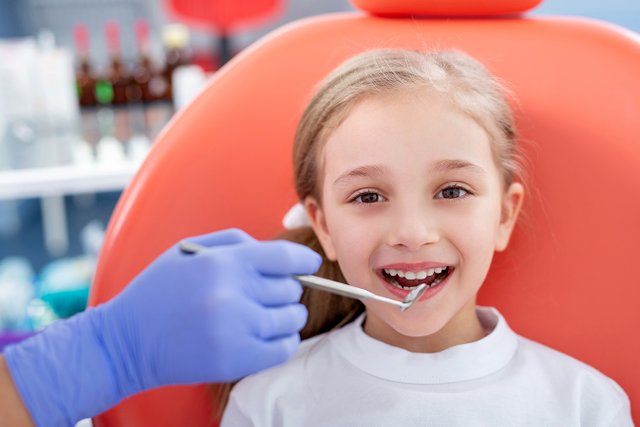Top 5 Dental Treatments for Children

Children's dental health is essential to their overall well-being and development. Early childhood is critical for developing healthy dental habits and preventing future dental problems. Regular visits to a pediatric dentist can help detect and address potential dental problems early. Here are the five most common dental treatments for children that promote and maintain dental health.
1. Dental checkups and cleanings
Routine dental checkups and cleanings are the foundation of preventive dental care for children. These visits, which are usually recommended every six months, allow the dentist to monitor the development of the child's teeth and gums, detect any problems early, and perform a professional cleaning to remove plaque and tartar.
The dentist will check for cavities, gum disease, crooked teeth, and other oral health problems during the checkup. If you search "pediatric dentist near me," be sure to choose an experienced and qualified specialist.
2. Dental sealants
Dental sealants are a highly effective preventive measure to protect children's teeth from decay. Seals are thin protective coatings applied to the chewing surfaces of the back teeth (molars and premolars), where tooth decay often begins. These teeth have grooves and cavities that can trap food and bacteria, making them more susceptible to tooth decay.
The application of sealants is quick and painless. The dentist cleans the tooth, applies an acidic gel to roughen the surface, rinses it, and then applies the sealant to the tooth enamel. The sealant bonds to the tooth and hardens, creating a protective barrier against tooth decay. Sealants can last for several years and are especially beneficial for children who are just learning to brush and floss.
3. Fluoride treatments
Another important preventive measure in pediatric dentistry is silver diamine fluorided treatment. Fluoride is a mineral that strengthens enamel and helps prevent tooth decay. Although fluoride is commonly found in toothpaste and public water sources, professional fluoride treatments provide higher concentrations and more effective protection.
The dentist applies fluoride varnish, gel, or foam to the child's teeth during a fluoride treatment. The treatment is quick and painless and usually takes only a few minutes. Regular fluoride treatments can significantly reduce the risk of tooth decay and help keep teeth strong and healthy.
4. Fillings
Despite preventive measures, some children may develop tooth decay that requires treatment. Dental fillings are used to restore teeth damaged by tooth decay. The procedure involves removing the damaged part of the tooth and filling the cavity with a suitable material, such as composite resin, which is tooth-colored and blends well with the natural teeth.
The process of getting a filling is simple. The dentist numbs the area around the affected tooth, removes the damaged tissue, cleans the cavity, and then fills it with composite material. This procedure not only restores the tooth's function but also prevents further caries from spreading.
5. Orthodontic assessment and treatment
Orthodontic assessment is an important part of pediatric dentistry. Early detection of alignment issues can prevent more serious problems later on. The American Association of Orthodontists recommends that children undergo their first orthodontic evaluation at age seven.
The dentist evaluates the child's bite, jaw development, and tooth alignment during an orthodontic evaluation. The dentist may refer the child to an orthodontist for further treatment if necessary. Typical orthodontic treatment for children includes braces and spacers to help correct crooked teeth and bite problems. Early intervention can result in shorter and less complicated orthodontic treatment in the future.
The bottom line
Ensuring dental health in children requires a combination of preventive measures and prompt treatment. Regular dental check-ups, teeth cleaning, and preventive procedures such as sealants and fluoridation play an important role in maintaining healthy teeth and gums. If dental problems do occur, prompt treatment, such as fillings, can prevent more serious problems. In addition, early orthodontic assessment can help resolve alignment issues before they become more complex. By prioritizing dental care from an early age, parents can help their children develop healthy oral health habits that will last a lifetime.